Reflections on a serious game in Zambia
Heath Kelsey ·One of the highlights of our recent Basin Health Report Card workshops in Katete and Mpika, Zambia, which we undertook with our partners at Worldwide Fund for Nature (WWF), and the Zambia Water Resources Management Authority (WARMA), was the game we play with everyone, called “Get the Grade.” It’s one of the highlights of almost all of our stakeholder engagement meetings these days.
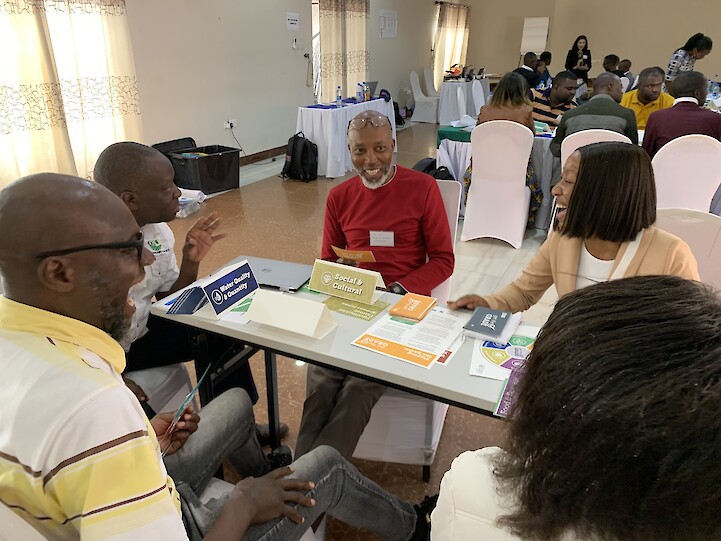
When we first created “Get the Grade” with WWF US, as part of our partnership called “Healthy Rivers for All,” I don’t think I expected it to have the value that I do now. I thought it would be a great way to explain how decision making might impact the basin in different ways, and I hoped it would be fun - almost an icebreaker activity at our workshops. I thought it also would be a good way to illustrate how the scores of a report card might reflect overall conditions in social, economic, and environmental aspects. But when I realized that it would take about 90 minutes to play, I worried that it would be difficult to justify including it in our meeting agendas. Our workshops for report cards have very tight agendas. In our workshops, we need to develop a conceptual understanding of the system with stakeholders, identify indicators and look for the data that would be used to assess them. We also discuss how to determine ideal conditions for each indicator (targets or thresholds), how we might analyze the data and even what the report card might look like. All of that takes every minute of a 2 and 1/2 day workshop. I didn’t think that the game would have enough value to justify the time it would take.
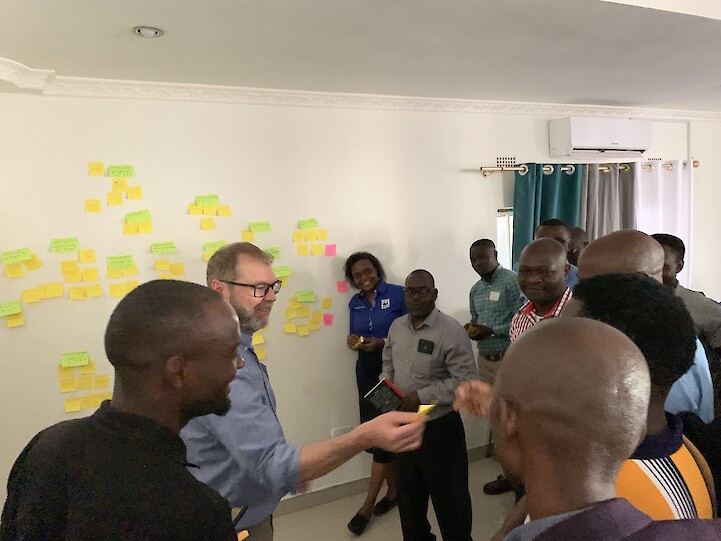
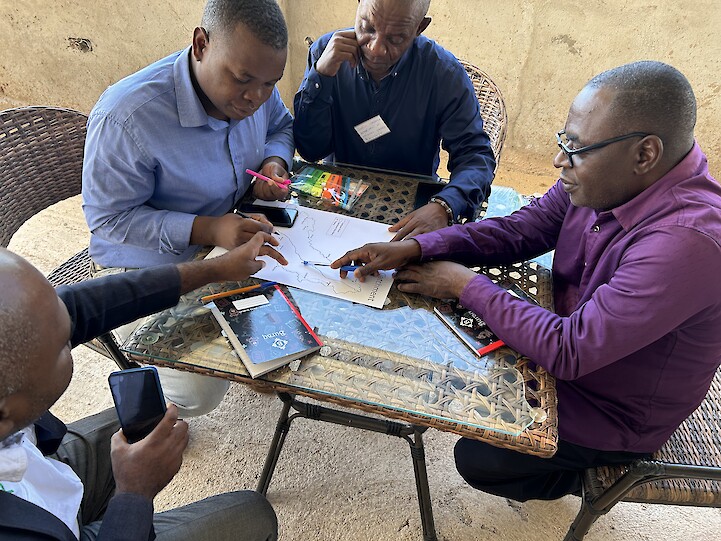
I don’t recall exactly when I changed my mind about this, but five or more years on, I’ve come to think of “Get the Grade” as an essential part of every workshop and meeting with a stakeholder engagement component, even those that don’t necessarily have a goal to create a report card.
There are a few reasons why I feel so strongly about it. In addition to the value it has as an illustration of the report card, and as an icebreaker that can loosen people up (which it does very well!), the game emphasizes a few themes that are really important for transdisciplinary processes.
Firstly, the game emphasizes the importance of understanding and respecting people with different perspectives, values, and experiences. From the beginning, the players are required to assume the persona of someone other than their professional or personal selves, in one of six categories- Ecosystems and Landscapes, Water Quality and Quantity, Economy, Social and Cultural, Health and Nutrition, or Management and Governance. They’re expected to represent, and even argue for, the views represented by new and different perspectives. They are forced to understand that perspective and advocate for it with their peers. It is a wonderful thing to see a water resource expert or researcher take on the persona of a businessman or an indigenous elder and argue from that viewpoint, often putting them at odds with the players who represent their actual, real-world jobs.
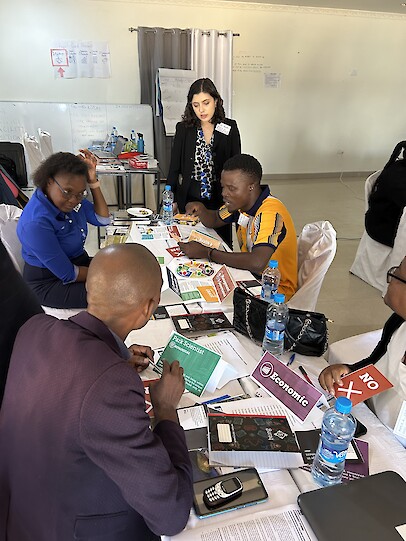
Secondly, the game provides an insight into the value of decision making based on incomplete, vs comprehensive information. At the start of the game, players only know their own, individual status. They advocate only for their own position, not knowing or caring how the other players are faring. Their status is determined by the color of a die, which only they can see. At each turn, players are asked to respond to a potential decision that needs to be made in their river basin. How should they decide if they should support a new policy restricting agricultural runoff or establishing a fishing cooperative? When looking after their own interests, they decide based on only what’s best for them. An agricultural land owner would probably not vote for a new restriction on farm runoff, putting them at odds with the ecologists and water quality folks. They have to argue with each other to achieve personal objectives. The decision made affects the status of their die doesn’t move from yellow to red (moderate to poor)? Or does it maybe go from yellow to green? After playing for 30 minutes in this way, however, things get switched up: All players reveal their dice, which are placed centrally on a game board for all to see. They are then told that they are not competing with their peers at the table, they are now competing with all of the other groups, who are playing at nearby tables. Suddenly, they are required to advocate for their whole team, not just their individual interests. They make decisions based on what is best for the whole basin, not just their new personae. And they have a complete picture of the conditions in the basin, based on the six categories. It is suddenly a team sport.
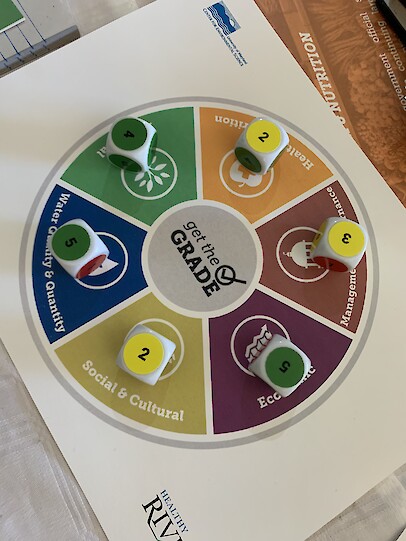
Teamwork is the third aspect that is strongly reinforced by the game- each table works together to maximize the score of their team, which represents a part of the overall system.
This last part is the one that really jumped out at me in Katete and Mpika. The stakeholders in the meeting are a team. They will advocate for the good of the whole of the Luangwa River Basin - the people, wildlife, and sustainable use of natural resources. This game, which I first thought of as only a fun exercise (it IS really fun and, invariably, no one wants to stop playing when the time is up!), creates a team atmosphere, and bonds them together with a common purpose. We began talking to each other, we understand each other better, we respect (and are open to) new viewpoints, we see the value of comprehensive knowledge, and we’ve become a team with a common purpose. Not bad for a 90 minute bit of fun!


About the author
Heath Kelsey
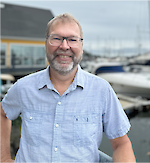
Heath Kelsey has been with IAN since 2009, as a Science Integrator, Program Manager, and as Director since 2019. His work focuses on helping communities become more engaged in socio-environmental decision making. He has over 15-years of experience in stakeholder engagement, environmental and public health assessment, indicator development, and science communication. He has led numerous ecosystem health and socio-environmental health report card projects globally, in Australia, India, the South Pacific, Africa, and throughout the US. Dr. Kelsey received his MSPH (2000) and PhD (2006) from The University of South Carolina Arnold School of Public Health. He is a graduate of St Mary’s College of Maryland (1988), and was a Peace Corps Volunteer in Papua New Guinea from 1995-1998.